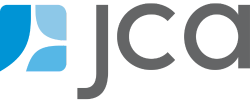For Good Measure: Sizing Up Data Quality

Liz Murray
Vice President, Professional Services
As guardians of the database, you provide an essential service to your organization. You are responsible for overseeing the data integrity of your fundraising CRM and its population of loyal users. Your empire is vast—how can you ensure that the data in your fundraising CRM is “good”? Consider the following attributes when striving to evaluate (and articulate!) the quality of data in your fundraising CRM:
- Accuracy: Fundraisers need to be able to trust the information stored within your database. Simply put, without accurate data, your system is ineffective. Staff will find alternative ways to store information, such as personal spreadsheets or email folders, because they know the data is reliable. A key factor to maintaining accuracy in your database is through prevention by establishing formalized end user training and documentation. Users need ongoing training on the system and access to detailed procedure manuals to know how to correctly and uniformly enter information into the system. Additionally, modern CRMs can help automate your “housekeeping” activities by allowing you to configure custom processes that run on a schedule based on your needs.
- Recency: Fundraisers must keep up-to-date on donor activities to provide exceptional donor experiences. When interacting with your organization, donors expect a streamlined experience across teams (e.g. the left arm must know what the right arm is doing). As database administrators, you are in pivotal position to act as the catalyst in ensuring your data is up-to-date. Within your direct control, you can set delivery timelines for when staff can expect to see various data types in the system. For example, staff can expect to see direct marketing appeals added to constituent records within 1 week of the drop-date. You can additionally work with team leads to establish data governance policies that define the organizational expectations for timely data entry for staff outside of your team (e.g. gift entry, contact reports).
- Completeness: Fundraisers need to understand the full picture behind a donor’s giving in order to effectively build lasting relationships. A CRM should allow fundraisers to efficiently review all pertinent information about a donor from a centralized location. This information allows fundraisers to cultivate and steward constituents based on their specific relationship to your organization. The absence of information can create confusion (followed quickly by frustration!) and can cause staff to make false assumptions based on limited data.
Measuring your data based on its accuracy, recency, and completeness allows you to create a data governance framework that goes beyond “good” data. You can clearly articulate the strengths of your data (and pat yourself on the back for a job well done!), and identify specific priorities to address as areas of improvement. This will allow you to develop meaningful policies and procedures that support the maintenance of quality donor data.
Sign up for our monthly newsletter to receive the latest tips from our consultants on fundraising best practices, optimizing your technology, and more.
